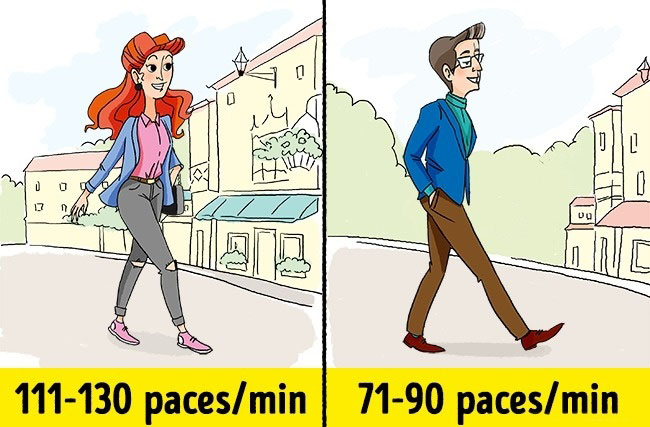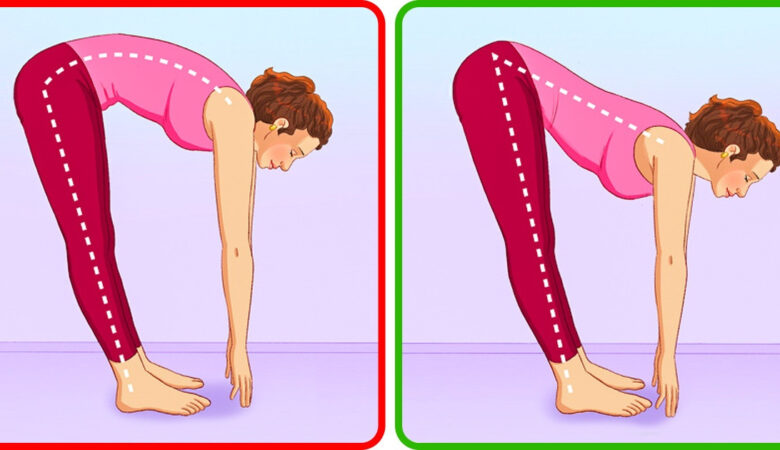When you want to lose weight, many diet programs and health experts recommend a quick walk as a calorie-burning cardio exercise. But what is the correct amount of walking each day to help you reach your weight loss goals?
Many of us play sports, go to the gym, try different diets … And during all that time we don’t even realize that long daily walks, as several studies show, are no less effective against excess pounds.
We discovered what rules to follow when walking to replace a complete set of exercises.
How To Turn A Walk Into A Training Set

The main factors that affect the calories burned when walking are the distance covered, your speed, and your body weight. For the best results, you should follow a regular schedule and use a pace counter.
This device tells you how far you have walked during the day. If you cover a big distance but still don’t lose weight, it can count how many steps you need to add.
This rough estimate will help you make your own schedule (note that a lot depends on your individual characteristics, lifestyle, eating habits, and health):
100 kcal = 2,000 steps = 1.6 km
1 kg = 140,000 steps = 7,000 kcal = 112 km
How to extend your walks:
- Try not to drive or take a bus.
- Take your children to and from school.
- Stop using elevators and escalators.
- Walk the dog longer.
To make your walks more interesting, try the following:
- Take a friend with you.
- Listen to your favorite music or audiobook.
- Walkthrough unknown places and choose new routes.
In winter, you can keep practicing at home if you have a treadmill. It allows you to watch movies or TV shows, keeping you in shape.
How To Walk Correctly

Remember that your paces are uneven and can vary from one foot to a yard. To count the length of your pace, measure a distance of 10-20 meters and cover it at your usual pace while counting steps. Divide the distance in centimeters (1,000 or 2,000) by the number of steps you have taken.
- Less than 70 paces/min: For a healthy person, this pace has almost no training effect. It is recommended for people recovering from a heart attack or suffering from severe angina.
- 71-90 steps/min, 3-4 km/h: Recommended for people with cardiovascular diseases.
- 91-110 steps/min, 4-5 km/h: A good charge for your body, suitable for any healthy person.
- 111-130 steps/min: It’s a great exercise for your body, but even healthy people have a hard time keeping that pace for a long time.
The Rules Of Walking

Start with a light load, gradually increasing the duration and pace. You must first increase the length of your walks and then increase your tempo. The loads must be adequate for your health.
Practice walking regularly. One walk per week does not help at all. If you can’t go hiking every day, do it at least 2-3 times a week. This can be done at any convenient time, but not earlier than 1 to 1.5 hours after a meal.
Consult your physician, and undergo a medical checkup. Repeat 1-2 times a year.
Observe your posture as you walk. Your torso and shoulders should be straight and your stomach should be sucked.
How Long To Walk Each Day To Lose Weight

Aim for a brisk walk of 30-90 minute walk most days of the week to lose weight. You can walk more on some days and less on others, but the total time of the week should be at least 150 minutes (2.5 hours)
You should walk fast enough to be in the moderate exercise zone, 60 to 70% of your maximum heart rate. Must breathe harder than normal and can speak in full sentences, but cannot sing. You can use the heart rate reading and exercise area from an exercise band, app, or heart rate monitor to make sure you are exercising at moderate intensity.
Although you can divide your walking time into periods of 10 minutes or more, you get an added benefit of burning fat by walking at a brisk pace for more than 30 minutes after warming up.
How Much Calories And Fat Burned In 30 Minutes

At a brisk pace, you would burn between 100 and 300 calories in 30 minutes (depending on your weight) or between 200 and 600 calories in one hour. By walking for 30 minutes or more at a time, some of these calories will come from stored fat.
During the first 30 minutes of exercise, your body burns stored sugars for fuel. These are used after about 30 minutes. To continue, your body releases fat from your fat cells and burns it for fuel. This stored fat is exactly what you want to lose, and it’s a good reason to increase your walking endurance, so you can walk for more than 30 minutes at a time.
Also, remember that a slow walk for a short distance will be useless; If you walk too fast and are not prepared for too long, it may even cause you harm.









Leave a Reply